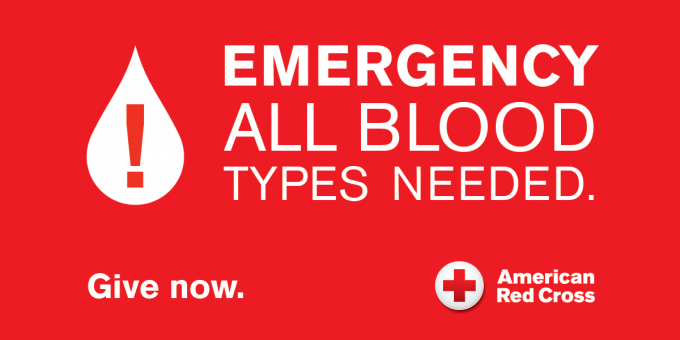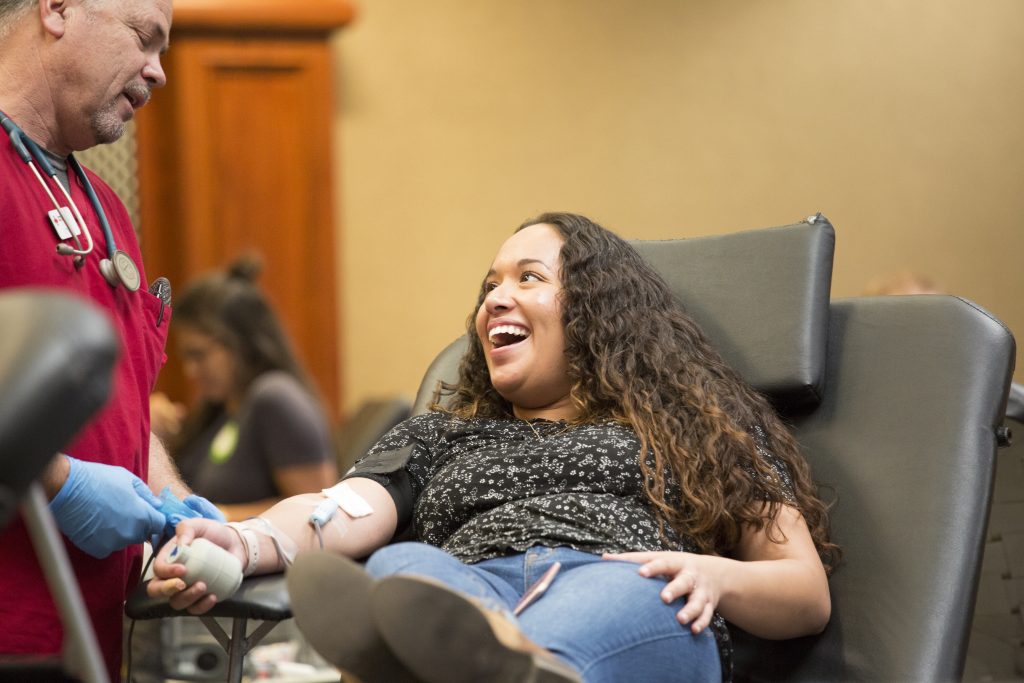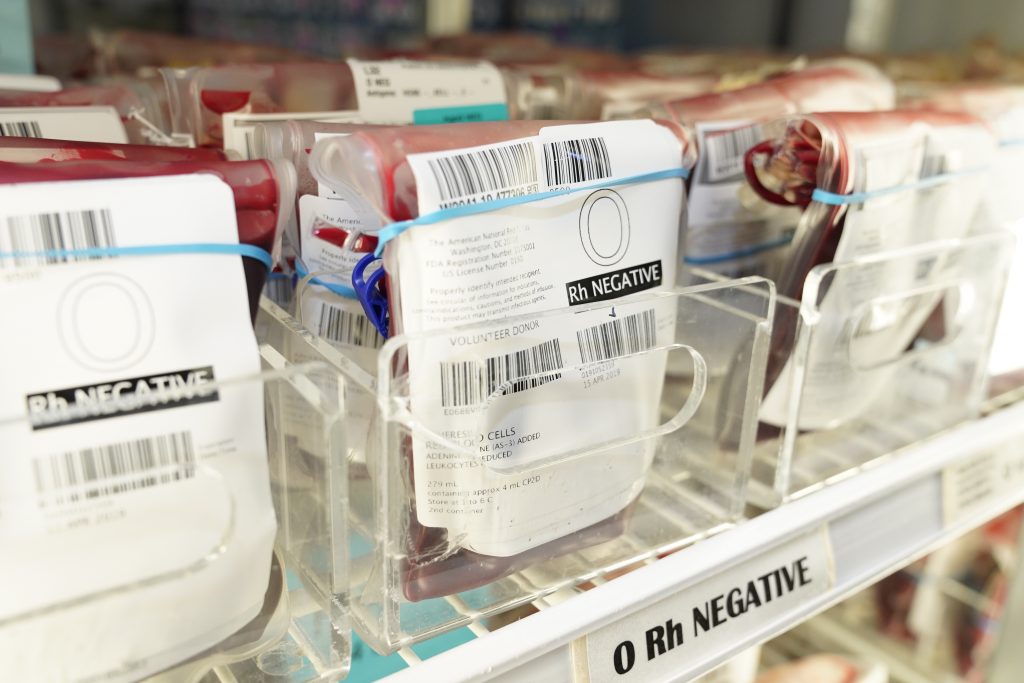
(UNDATED) – The American Red Cross strongly urges healthy, eligible individuals who are feeling well to give blood or platelets to help maintain a sufficient blood supply and prevent shortages as concerns about the outbreak of coronavirus disease 2019, or COVID-19, rise in the U.S.

Cold and flu season has already impacted the nation’s ability to maintain its blood supply. As the number of coronavirus cases grows in the U.S., the number of people eligible to give blood for patients in need could decrease further.

president, Red Cross Blood Services
“We’re asking the American people to help keep the blood supply stable during this challenging time. As communities across the country prepare for this public health emergency, it’s critical that plans include a readily available blood supply for hospital patients,” said Chris Hrouda, president, Red Cross Blood Services. “As fears of coronavirus rise, low donor participation could harm blood availability at hospitals, and the last thing a patient should worry about is whether lifesaving blood will be on the shelf when they need it most.”
The Red Cross provides blood to more than 2,500 hospitals across the country, including 80 hospitals in Indiana.

Please make an appointment to donate blood now by using the Red Cross Blood Donor App, visiting RedCrossBlood.org, calling 1-800-RED CROSS (1-800-733-2767) or enabling the Blood Donor Skill on any Alexa Echo device. Blood donors with type O blood and platelet donors are especially needed right now.
Donating blood is a safe process and people should not hesitate to give or receive blood. There are no data or evidence that this coronavirus can be transmissible by blood transfusion, and there have been no reported cases worldwide of transmissions for any respiratory virus, including this coronavirus, from a transfusion.
The Red Cross only collects blood from individuals who are healthy and feeling well at the time of donation – and who meet other eligibility requirements, available at RedCrossBlood.org.
At each blood drive and donation center, Red Cross employees follow thorough safety protocols including wearing gloves, routinely wiping down donor-touched areas, using sterile collection sets for every donation, and preparing the arm for donation with an aseptic scrub. These mitigation measures will help ensure blood recipient safety, as well as staff and donor safety in reducing contact with those who may potentially have this respiratory infection.
Blood drive hosts play an important role Blood drive hosts also play a critical role in maintaining a sufficient blood supply and are asked to keep hosting blood drives for patients who rely on lifesaving blood. The need for blood is constant, and volunteer donors are the only source of blood for those in need of transfusions.
The Red Cross, with the help of its blood drive hosts and blood donors, can help ensure the safety and availability of the U.S. blood supply for patients including accident and burn victims, heart surgery and organ transplant patients, and those receiving treatment for leukemia, cancer or sickle cell disease.
“Keep giving, keep hosting blood drives,” said Hrouda. “Patients across the country need our help.”
To learn more about hosting a blood drive for patients in need, please visit RedCrossBlood.org.
Red Cross committed to blood supply safety
The top priority of the Red Cross is the safety of our valued staff, blood donors and blood recipients, and we are committed to transparency with the American public during this evolving public health emergency. There are no data or evidence that this coronavirus can be transmissible by blood transfusion, and there have been no reported cases worldwide of transmissions for any respiratory virus including this coronavirus, from a transfusion.
Nonetheless, the Red Cross has implemented new blood donation deferrals out of an abundance of caution. Individuals are asked to postpone their donation for 28 days following:
- Travel to China and its special administrative regions, Hong Kong and Macau, as well as Iran, Italy and South Korea;
- Diagnosis of COVID-19, contact with a person who has or is suspected to have the virus.
As the situation evolves, the Red Cross will continue to evaluate all emerging risks in collaboration with the U.S. Food and Drug Administration, Centers for Disease Control and Prevention and industry partners to determine if additional intervention strategies are needed. Together, the Red Cross stands ready to keep the American public informed and prepared.
Upcoming blood donation opportunities, March 10-31:
Bartholomew County
Columbus
- 3/11/2020: 2 p.m. – 7 p.m., Kroger, 3060 N National Road
- 3/14/2020: 8 a.m. – 12:30 p.m., Saint Bartholomew Church, 1306 27th Street
- 3/27/2020: 2 p.m. – 7 p.m., The Church of Jesus Christ of Latter Day Saints, 4850 W. Goeller Road
- 3/29/2020: 12 p.m. – 5 p.m., Hotel Indigo, 400 Brown Street
Hope
- 3/23/2020: 2 p.m. – 7 p.m., Hope Moravian Church, 202 Main Street
Brown County
Nashville
- 3/25/2020: 2 p.m. – 7 p.m., Parkview Church of the Nazarene, 1750 East State Road 46
Monroe County
Bloomington
- 3/11/2020: 12 p.m. – 6 p.m., Bloomington Blood Donation Center, 1600 W. 3rd St.
- 3/14/2020: 8 a.m. – 2 p.m., Bloomington Blood Donation Center, 1600 W. 3rd St.
- 3/18/2020: 12 p.m. – 6 p.m., Bloomington Blood Donation Center, 1600 W. 3rd St.
- 3/21/2020: 8 a.m. – 2 p.m., Bloomington Blood Donation Center, 1600 W. 3rd St.
- 3/25/2020: 12 p.m. – 6 p.m., Bloomington Blood Donation Center, 1600 W. 3rd St.
- 3/26/2020: 11 a.m. – 5 p.m., Indiana University Briscoe Residence Center, 1225 North Fee Lane
- 3/28/2020: 8 a.m. – 2 p.m., Bloomington Blood Donation Center, 1600 W. 3rd St.
- 3/31/2020: 1 p.m. – 6 p.m., Indiana University Read Residence Center, 125 S. Jordan
Blood donation process
A blood donation takes about an hour from start to finish, but the actual donation itself only takes about 8-10 minutes. Donors can also save up to 15 minutes at the blood drive-by completing a RapidPass®. With RapidPass®, donors complete the pre-donation reading and health history questionnaire online, on the day of donation, from a mobile device or computer. To complete a RapidPass®, follow the instructions at RedCrossBlood.org/RapidPass or use the Red Cross Blood Donor App.
To donate blood, individuals need to bring a blood donor card or driver’s license or two other forms of identification that are required at check-in. Individuals who are 17 years of age in most states (16 with parental consent where allowed by state law), weigh at least 110 pounds and are in generally good health may be eligible to donate blood. High school students and other donors 18 years of age and younger also must meet certain height and weight requirements.
About the American Red Cross
The American Red Cross shelters, feeds and provides emotional support to victims of disasters; supplies about 40% of the nation’s blood; teaches skills that save lives; provides international humanitarian aid; and supports military members and their families. The Red Cross is a not-for-profit organization that depends on volunteers and the generosity of the American public to perform its mission. For more information, please visit redcross.org or cruzrojaamericana.org, or visit us on Twitter at @RedCross.



